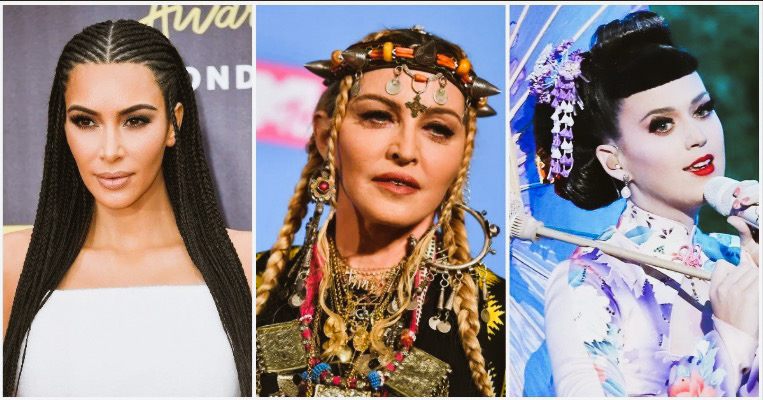Culture | October 31st, 2020
Avoid Cultural Appropriation This Halloween
By: Noella Williams

Halloween costumes can be creative, versatile and fashionable. However, if there is a trait that a quality costume shouldn’t have, it’s to be offensive. Cultural appropriation is very common during every year’s spooky season. Whether it’s an insensitive costume, blackface, or an overall dig to an individual’s culture, there are entirely too many options for costumes to be insensitive.
There is a very thin line between appreciating a culture and beginning to appropriate that culture. According to the Oxford Dictionary, cultural appropriation is the “unacknowledged or inappropriate adoption of the practices, customs, or aesthetics of one social or ethnic group by members of another (typically dominant) community or society.”
This can be something as minor as referring to something as your “spirit animal” or something of a greater magnitude like coining your mascots after native tribes. Sometimes, it may be a slip-up and not meant to cause any disrespect, however, in a recent article by the Tampa Bay Times, Florida State University’s usage of the Seminole namesake is intentional and they have zero plans to change the offensive mascot of their school.
“Florida State University’s official use of the Seminole name is different from other names in that it does not perpetuate offensive racial stereotypes nor is it meant to diminish or trivialize any Native American or indigenous peoples. Instead, it is used with explicit tribal permission and involvement to honor and promote the Seminole Tribe of Florida’s unconquered history and spirit that persists to this day,” said Elizabeth Hirst, FSU’s chief of staff and liaison to the tribe, in an article by the Tampa Bay Times. Over the years, FSU students have used their university’s mascot as an excuse to inappropriately adorn themselves in native attire.
Sam Elk is an Indigenous woman who is disgusted at the repetitive mocking of her culture during Halloween — and even FSU games.
“It has always been an eerie experience to see a non-Native dress in make up regalia, even back when it was a fad,” Elk said. “For anyone who knows that truth in the making of this country, you’d be properly spooked. For all of your [white] ancestors who came to this land aided in some form or way in the genocide and cultural genocide of millions upon millions of people that resided on this land for thousands of years.”
Elk lived in Tallahassee momentarily and was shocked to see the amount of cultural appropriation within her town.
“The remaining survivors of this genocide do not want to see our culture, which has been torn to bits, getting mocked or romanticized by the slaughterer’s kin,” Elk said. “It is not fun. Honestly, it just makes me sick, because FSU students are really appalling when it comes to that as well. I was always very embarrassed to be in that town or to even be next to someone who had that logo. Very embarrassing indeed.”
Blackface, brownface or yellowface are makeup techniques used to negatively depict a skin tone of a Black, brown or Asian person. Blackface is very common for Halloween and has extended a year-round stay via digital blackface and blackfishing. Last September, Canada’s Prime Minister Justin Trudeau was exposed for wearing brownface to an Arabian Nights themed party in 2001.
A popular costume nowadays is a gy*sy, which is a racial slur used against Romani people that is often rebranded for white women that describe themselves as free-spirited. Deeming cultural figures, like a geisha or bindi, as “sexy” is wildly inappropriate, racially insensitive and is not a costume. These costumes objectify and degrade the women of their respective cultures.
Graphic designer Michelle Jose, a native Philippine woman, is tired of seeing her culture mocked during Halloween each year and she believes that others need to be educated on why these inappropriate costumes are hurtful.
“There’s a difference when a foreigner goes to visit another country and dresses up in Hanbok (Korean traditional dress), since it’s mostly done with an appreciation for the culture,” Jose said. “Whereas, during Halloween, it’s not appropriate at all. It’s ignorance.”
Jose grew up in the Philippines and didn’t celebrate Halloween there due to its minimal relevance.
“I do believe that they (those who culturally appropriate) believe that what they’re doing is not racist or offensive. They’ll say it’s just ‘for fun’ but their concept of fun is not fun for other people,” Jose said. “These people never experienced what other races mostly face on a daily basis, so I guess maybe that’s what they’re going for Halloween. All jokes aside, this is why education and awareness is important. We can always keep trying to educate each other and do better.”
If a costume requires an explanation as to why it’s not racist, it shouldn’t be worn. People of color and indigenous people should not have to constantly have the debate over costumes and their culture every year, so maybe this Halloween, stick to wearing cat ears or angel wings.






